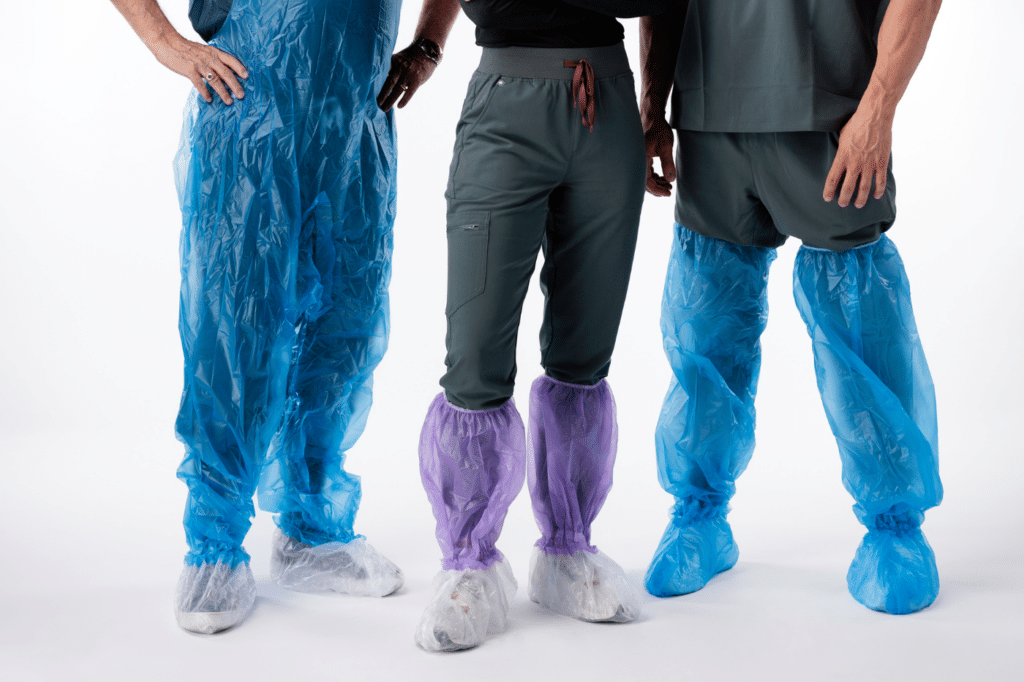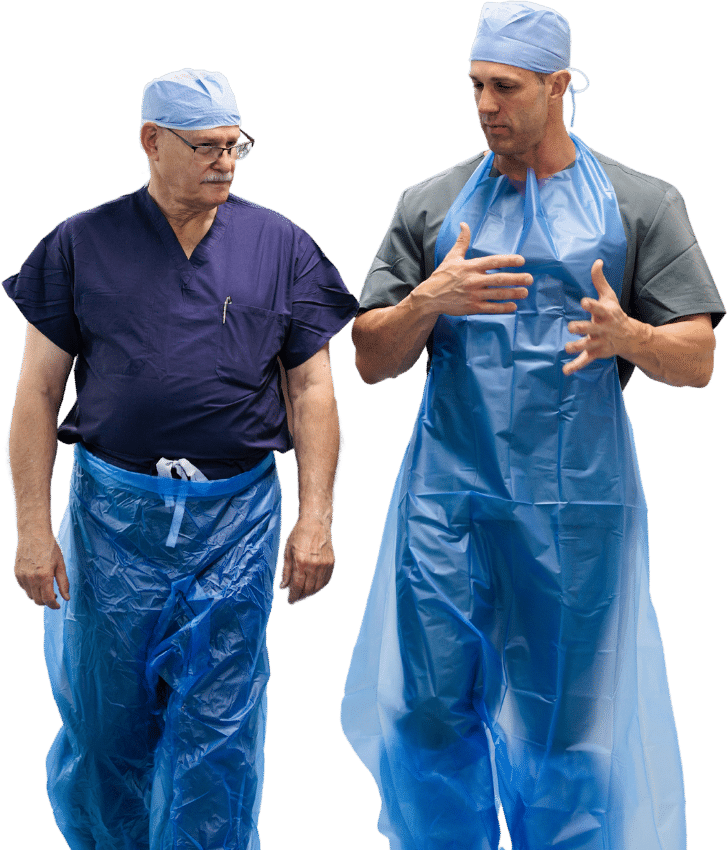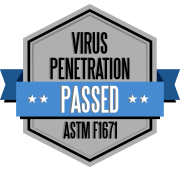Nobody ever became a nurse or a surgeon to stay clean on the job. It’s a universal truth that bodily fluids will wind up in places you never thought they could go. For healthcare professionals, that’s just (a less than desirable) part of the job. But preventing blood and bodily fluid splashes from wreaking havoc on personal health, clothing, and shoes is still a major concern for the medical field.
As squeamish as it may make you, it’s important to note a few things these medical professionals understand about blood splash during surgery:
- It is not uncommon for blood and other body fluids to splash during surgery.
- It’s actually a normal part of the surgical process.
- Blood splashes during surgery are due to the body’s circulatory system.
Given the above, it can be somewhat ironic just how sterile operating rooms are, and how much healthcare professionals clean and wash up before procedures, knowing just how much blood and bodily fluids can be exchanged during a surgery. Nonetheless, keeping skin clean and free of bacteria is imperative within the healthcare community in order to avoid cross-contamination.
What surfaces are at risk of catching blood spatter?
When surgeons make an incision, they are essentially opening up a vessel that contains blood. As the blood flows out of the vessel, it can come into contact with anything in the operating room, such as the surgeon’s or nurse’s:
- hands
- eyes
- face
- hair
- shoes
This is why it is so important for the medical team to wear proper protective clothing when performing surgery — and why Sloan provides a variety of personal protective equipment (PPE) designed for full-body protection against blood splash. After all, we know firsthand how stressful it is to come in contact with blood and bodily fluids — and how distracting it is when you feel your health and safety is compromised as a result of inadequate PPE.
How much blood are we talking?
In most cases, the amount of blood that splashes during surgery is relatively small. However, there are some instances when larger amounts of blood can splash, which can pose a serious health risk to the medical team, as well as create a biohazardous mess to clean up.
Regardless of how much blood and bodily fluids are expelled, the right protective clothing is essential.
Sloan Medical offers a variety of PPE items to help protect against these hazards, such as:
- Gowns
- Gloves
- Face masks and shields
- Eye protection
- Shoe covers
- And more
It is important to wear the right type of protective clothing for the procedure. Talk to a Sloan sales rep to find out what would work best for maintaining a sterile environment in your operating room or look around on our website and order a free sample today.
What else can I do to prevent the transmission of bloodborne pathogens?
The Centers for Disease Control and Prevention (CDC) recommends a set of standard precautions that should be taken when handling any bodily fluid, such as blood, urine, vomit, and feces. The three main ways to prevent the spread of infection are:
- Using personal protective equipment (PPE) such as gloves, gowns, masks, and eye protection.
- Using barriers such as surgical drapes and covers.
- Cleaning your hands thoroughly with soap and water or an alcohol-based hand sanitizer before and after touching any body fluid.
If you’re confused about what to do immediately after a blood splash encounter, check out this article from the American Nurses Association. It covers helpful steps to take after exposure. We also suggest talking with a supervisor about any additional safety and preventative measures they may recommend to keep you safe.
Staying clean and dry in the OR is a tall order — we get it. But the reality is, if you’ve come in contact with bodily fluids, you’re not safe. Sloan Medical products keep your team dry and protected with top-tier PPE, a line truly superior in our industry. And we’re more than happy to prove it to you.
For starters, try our 100-percent impermeable boots today. Get your free sample of STA-DRI here.





